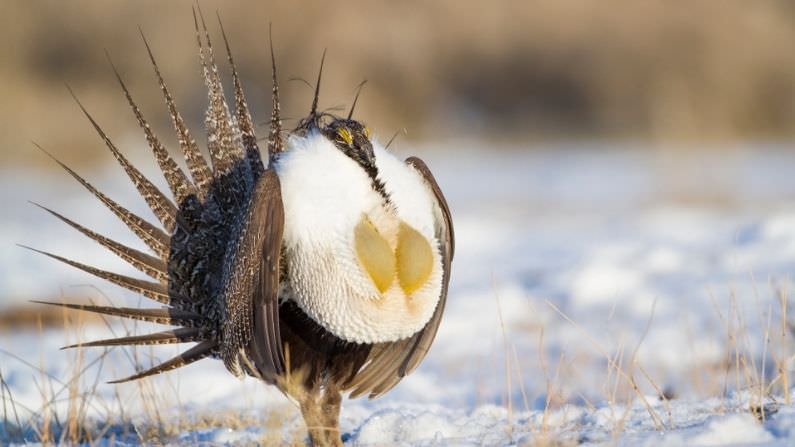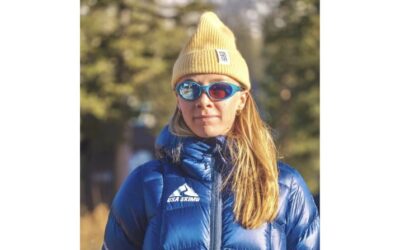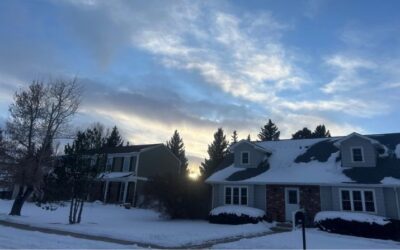Town Council Nullifies Ordinance 473
The Jackson Town Council voted Monday to loosen the occupancy requirements in its land development regulations. The move will effectively eliminate Ordinance 473, which previously banned more than three unrelated people from living together in a single-family home. Vice Mayor Arne Jorgenson said nixing the rule is a critical step in making the valley more livable for Teton County’s working population, but he also said it comes with some caveats.
“I mean, to me, this change increases opportunity for housing in our community. It will lead to more enforcement, and it will lead to the importance of the town increasing resources to code enforcement,” he said.
Specific updates include removing the definition of the term “family” from town regulations in order to better accommodate non-traditional households. Counselors also upped current occupancy limits to four people per 200 square feet in a house, or four per bathroom, depending on the location. The changes need to be affirmatively voted on three times before they officially go into effect.
Wyomingites Support Medicaid Expansion
A new poll has found that the majority of Wyoming voters support Medicaid expansion—a move that was killed by a state senate committee last March. The poll was conducted for the American Cancer Society Cancer Action Network, AARP, and the American Heart and Lung associations. Lori Weigel discussed the main findings of the poll during a virtual press briefing Tuesday.
“So, we had a majority of Republicans, a majority of independent or unaffiliated voters and virtually all of Democrats—98%—indicating support for this,” she said. “There are very few policy issues on which we conduct opinion research on which we see this kind of broad, bipartisan support. Even with a partisan distinction here, it’s still very striking.”
Weigel is principal of New Bridge Strategy, the Republican opinion research company that conducted the poll. She said 58% of Wyoming Republicans and 64% of Independents support Medicaid expansion. The poll also found that more than one in four residents polled are worried about losing their health insurance in the next year. Additionally, slightly more than half of voters say the state’s healthcare system is not meeting the needs of working, lower-income residents.
“They feel like they know someone personally who might benefit from this by a wide margin,” Weigel said. “And they really want their state representative or senator to support this if this type of proposal comes before them.”
Medicaid expansion is expected to come before the state legislature again next year. Expanding the program could help provide health insurance coverage for about 24,000 Wyoming residents, according to advocates and the Wyoming Department of Health.
Visitation Continues to Break Records
Grand Teton National Park has hosted nearly 3.5 million visitors so far in 2020, according to the park. That’s already surpassed the biggest year on record—which was 2018—with 3 months still to go. Interest in Northwestern Wyoming’s wild places has continued to rapidly rise over the past four years, with trail use in Grand Teton up almost 50% since 2017. The park is reportedly studying visitor habits to try and make sure the experience of traveling here is worthwhile for tourists even as records continue to shatter nearly every month.
Advocates Search for Better Sage-Grouse Protections
When you think about iconic Western species, you might think bison, moose, or a grizzly bear. But one animal to consider might be the sage-grouse. A sage-grouse is a small bird native in many states across the West and integral to Wyoming’s history and tribal cultures. Daly Edmunds, Director of Policy and Outreach for Audubon Rockies, explained in Zoom presentation last week what makes them unique.
“So the males are the first to arrive on the leks and they’ll fight each other to try and get the attention of the females. They’ll strut around with their tails fanned and emitting this drumming sound from their air sacs on their chest. Squeezing nearly a gallon of air and sound can travel for up to two miles,” Edmunds said.
Wyoming hosts 37% of the world’s sage-grouse, according to Edmunds. The species thrives in sagebrush habitats, which are numerous across the Mountain West but are slowly dwindling throughout the country due to a number of factors, including climate-change-induced wildfires, oil and gas development, and growth of human infrastructure in cities and towns. Edmunds said it’s critical for Wyoming to remain a safe haven for the grouse because it’s such a strong habitat for the birds already.
“We need to protect the best habitat we have because we are having a really hard time restoring them,” she said.
The United States has lost 80% of its sage-grouse population since 1965 and it is still dwindling, according to the U.S. Geological Survey. Edmunds said the time is now for conservation and habitat protection efforts to become more sustainable and noticeable throughout the country.
Western Water Experts Testify
Water experts from across the West testified before Congress last Friday. Policymakers from the federal government, seven states—including Wyoming— and two tribes spoke about drought.
One congressman described the dire water supply issues as “one of the most pressing challenges we face in the 21st century.” State water leaders, including John Entsminger of the Southern Nevada Water Authority, urged collaboration between the basin’s users.
“Do we double down on the promises of last century and fight about water that simply isn’t there or do we roll up our sleeves and deal with the climate realities of this century?” Entsminger said.
Many said the river was overallocated and will not be able to support those who rely on it—including 40 million people—and more than a trillion dollars of economic activity. Tribal leaders pushed for the federal government to formalize a way for tribes to participate in water negotiations, citing their historical exclusion.
The Wyoming representative who testified Friday was Pat Tyrrell, Wyoming commissioner for the Upper Colorado River Commission and the former state engineer.
Alex Hager of KUNC in Greeley, Colorado contributed reporting to this story.






